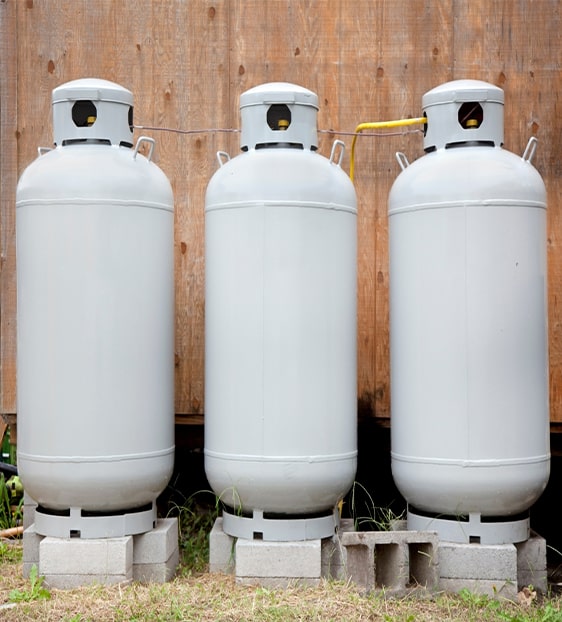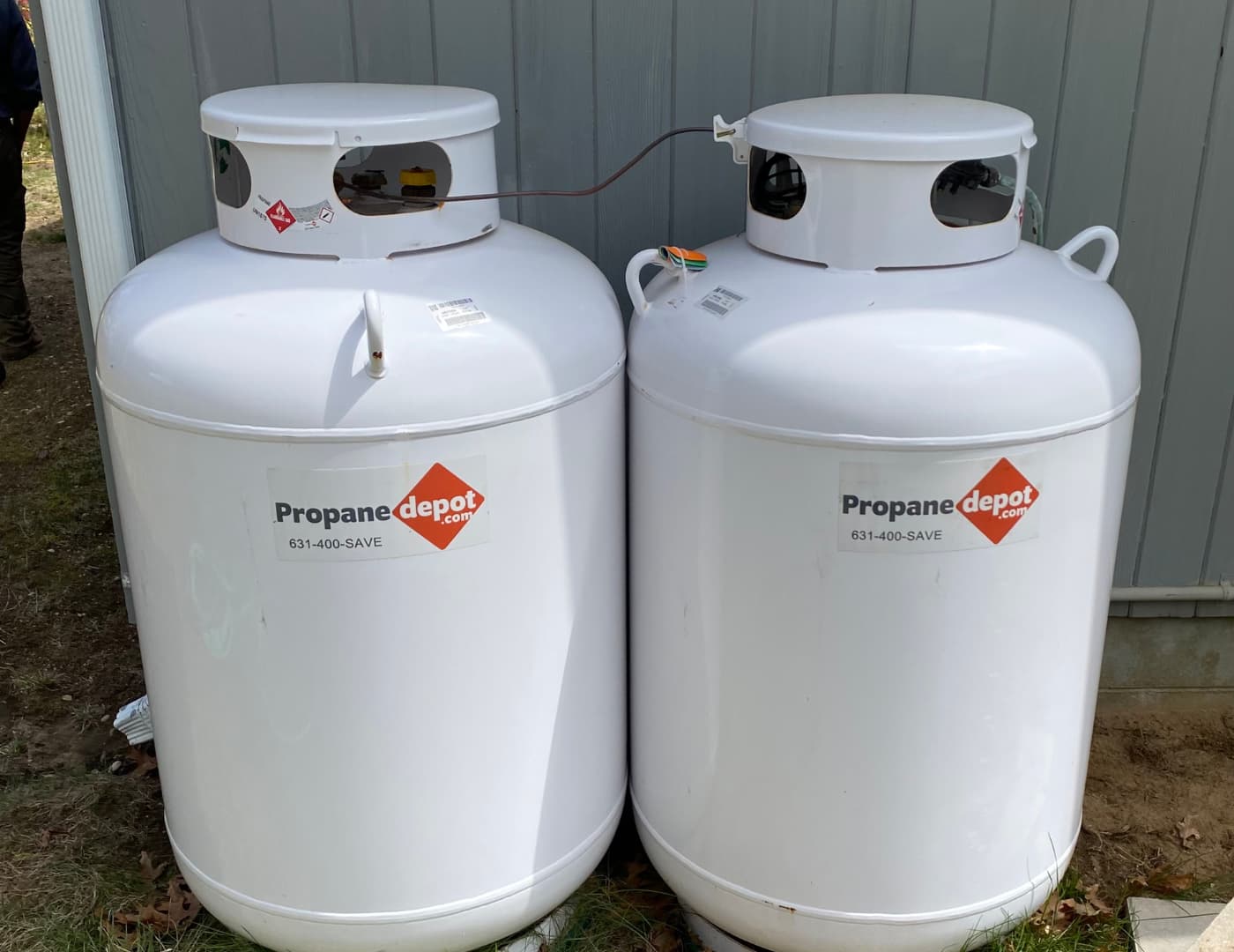Propane tanks have become an essential part of modern living, providing a reliable source of energy for heating, cooking, and various industrial applications. Whether you're looking to buy a used propane tank or sell one, understanding the process is crucial. This article delves into everything you need to know about propane tanks, including safety tips, maintenance, and how to choose the right tank for your needs.
Propane tank used options are a popular choice for those seeking cost-effective solutions. By purchasing a used propane tank, you can save money while ensuring that it still meets your energy requirements. However, it's important to know the legal requirements and safety standards associated with buying and selling used tanks.
This guide will help you navigate the process of acquiring a propane tank used, ensuring you make an informed decision. From understanding the differences between new and used tanks to exploring maintenance tips, we'll cover all the essential aspects to keep your propane tank functioning optimally.
Read also:Chris Pine Who Dated Who Ndash A Comprehensive Guide
Understanding Propane Tanks
What is a Propane Tank?
A propane tank is a storage container designed to hold propane gas, which is commonly used as a fuel source. Propane tanks come in various sizes and types, catering to different needs. Residential tanks typically range from 100 to 1,000 gallons, while smaller portable tanks are available for camping or grilling purposes.
Propane tanks used in residential and commercial applications are regulated by strict safety standards. These tanks must meet specific requirements set by organizations like the American Society of Mechanical Engineers (ASME) and the Department of Transportation (DOT).
Types of Propane Tanks
When considering propane tank used options, it's important to understand the different types available:
- Portable Tanks: Typically 20-pound tanks used for grills and small appliances.
- Residential Tanks: Large tanks ranging from 100 to 1,000 gallons for home heating and cooking.
- Commercial Tanks: Larger tanks designed for businesses and industrial applications.
- Bulk Tanks: Custom tanks used for large-scale operations.
Each type serves a specific purpose, and understanding the differences can help you choose the right tank for your needs.
Buying a Propane Tank Used
Where to Buy Propane Tank Used
When looking to purchase a propane tank used, consider the following options:
- Online Marketplaces: Websites like Craigslist, eBay, and specialized propane tank marketplaces offer a wide selection.
- Local Dealers: Many propane suppliers sell used tanks directly to customers.
- Auctions: Government or private auctions can be a great source for affordable used tanks.
It's crucial to verify the tank's condition and compliance with safety standards before making a purchase.
Read also:Rachel Mclish Age The Iconic Journey Of A Fitness Legend
Factors to Consider When Buying
Before buying a propane tank used, consider the following factors:
- Size: Ensure the tank is the right size for your needs.
- Age: Check the tank's manufacturing date and hydrostatic test date.
- Condition: Inspect the tank for corrosion, dents, or other damage.
- Certifications: Verify that the tank meets DOT or ASME standards.
By thoroughly evaluating these factors, you can make a well-informed decision when purchasing a used propane tank.
Selling a Propane Tank Used
Preparing Your Tank for Sale
If you're selling a propane tank used, proper preparation is essential. Start by ensuring the tank is empty and clean. Remove any rust or corrosion and provide documentation of its hydrostatic test and certifications. This will increase the tank's value and appeal to potential buyers.
Where to Sell Your Propane Tank Used
Consider the following platforms to sell your propane tank used:
- Online Classifieds: Post listings on websites like Craigslist or Facebook Marketplace.
- Specialized Propane Tank Websites: Some websites focus exclusively on buying and selling propane tanks.
- Local Classifieds: Advertise in local newspapers or community bulletin boards.
Providing detailed photos and information about the tank's condition and certifications can help attract buyers.
Propane Tank Safety
General Safety Tips
Safety should always be a priority when handling propane tanks used. Follow these general safety tips:
- Store tanks in a well-ventilated area away from heat sources.
- Regularly inspect tanks for leaks or damage.
- Ensure proper installation by a certified technician.
- Follow manufacturer guidelines for maintenance and usage.
By adhering to these safety measures, you can minimize the risk of accidents and ensure the longevity of your propane tank.
Maintenance and Inspection
Regular maintenance is crucial for the safe and efficient operation of propane tanks used. Schedule annual inspections with a certified technician to check for leaks, corrosion, and other potential issues. Additionally, perform routine checks yourself to identify any signs of wear or damage.
Legal and Regulatory Requirements
Federal and State Regulations
Propane tanks used are subject to federal and state regulations. The Department of Transportation (DOT) and the American Society of Mechanical Engineers (ASME) set standards for tank design, construction, and maintenance. Ensure your tank complies with these regulations to avoid legal issues and ensure safety.
Hydrostatic Testing
Hydrostatic testing is a mandatory procedure for propane tanks used. This test ensures the tank's structural integrity and ability to withstand pressure. Tanks must undergo hydrostatic testing every 12 years, with a requalification test every five years.
Environmental Impact
Propane as a Clean Fuel
Propane is considered a clean fuel, producing fewer emissions compared to other fossil fuels. Using propane tanks can help reduce your carbon footprint and contribute to a healthier environment. However, it's important to properly dispose of used tanks to avoid environmental harm.
Recycling Propane Tanks
When a propane tank reaches the end of its lifespan, it can be recycled. Many recycling centers accept propane tanks used, ensuring they are properly dismantled and the materials are reused. This helps minimize waste and promotes sustainability.
Cost Considerations
Price Range for Propane Tank Used
The cost of a propane tank used varies depending on its size, condition, and age. Smaller portable tanks can range from $50 to $200, while larger residential tanks may cost between $500 and $2,000. Prices can fluctuate based on market demand and regional factors.
Long-Term Savings
Purchasing a propane tank used can lead to significant long-term savings. By investing in a high-quality, well-maintained tank, you can reduce energy costs and avoid the need for frequent replacements. Additionally, propane is often more cost-effective than other fuel sources.
Conclusion
In conclusion, buying or selling a propane tank used requires careful consideration of various factors, including size, condition, and compliance with safety standards. By understanding the different types of tanks, safety tips, and maintenance requirements, you can make an informed decision that meets your energy needs.
We encourage you to share your thoughts and experiences in the comments below. If you found this article helpful, please consider sharing it with others. For more information on propane tanks and related topics, explore our other articles on the website.
Table of Contents
- Understanding Propane Tanks
- Buying a Propane Tank Used
- Selling a Propane Tank Used
- Propane Tank Safety
- Legal and Regulatory Requirements
- Environmental Impact
- Cost Considerations
- Conclusion
References:


